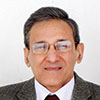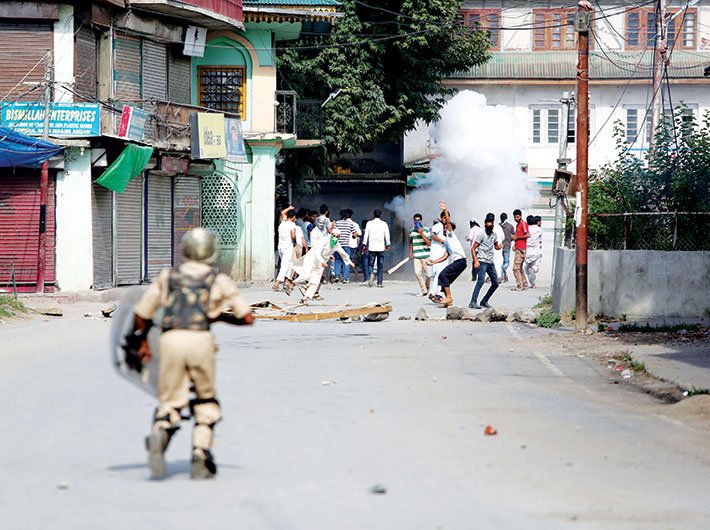The supreme court is adjudicating civil society-military relations, and this reflects a failure of both the civil and the military leadership
Understanding civil-military relations brings to mind the story of the three blind men examining an elephant. Since each can only sense what he is touching and has no concept of the elephant as a whole, each concludes that the beast is something different from what it really is.
In general, there are two lenses through which to examine these questions. The first is the military as an organisation interacting with government. The second lens is the relationship of militaries and the societies from which they stem, and the latter is the subject of the issues raised before the supreme court.
The implementation issues under the Armed Forces Special Powers Act (AFSPA) before the supreme court arise from practices during the conduct of a counterinsurgency which moves civil-military relations in the direction of a “garrison state” with implications for political oversight and the relationship between individuals in the military and civilian society.
The supreme court is considering a number of related but distinct issues under AFSPA. The Jammu and Kashmir state government has sought clarification whether an FIR can be filed and sanction of the central government is needed only for prosecution. There is a PIL seeking a probe in an alleged fake encounter. In response to prosecutions on the orders of the supreme court some 363 army officers have sought detailed guidelines on what constitutes ‘bona fide’ action under AFSPA. Recently another 107 petitioners have come out in support of officers indicted by the CBI. Some 739 army personnel have filed petitions as “collective action” against the PIL filed by civil society.
These petitions are part of a dangerous trend. The government had agreed in 2004 that the National Human Rights Commission (NHRC) can recommend interim compensation in cases relating to human rights violation by armed forces but in 2016 opposed the NHRC conducting a probe into extrajudicial ‘killings’ by the army and police in Manipur. NHRC has also informed the supreme court that it had no power to act against persons or authorities who did not follow the guidelines laid down but could only make recommendations. Now in 2018, a complaint has been filed before the NHRC by three children of army officers in Jammu and Kashmir alleging that the administration has failed to secure their human rights against incidents of stone pelting and unruly mobs. The issue has now moved to the supreme court.
The Armed Forces (Special Powers) Act, 1958, or AFSPA, has long been a subject of debate. It gives special powers to army officials to open fire at any individual even if it results in death and to arrest, seize and search any premise without a warrant. Prosecution of an authorised officer requires prior permission of the central government. A number of issues being inquired into by the CBI arose because individuals who had been taken into custody were not handed over to the nearest police station as soon as possible, as required under AFSPA, and were killed, including a 12-year-old boy.
The supreme court has upheld the constitutionality of AFSPA in a 1998 judgment (Naga People’s Movement of Human Rights vs. Union of India). The court pointed out that there is no immunity while exercising the special powers, the authorised officer should use minimal force necessary for effective action and strictly follow the ‘Dos and Don’ts’ issued by the army. In 2004 the central government appointed a five-member committee headed by Justice BP Jeevan Reddy, with a retired general as member, to review the provisions of the Act in the northeastern states. The committee recommended the powers of the armed forces and paramilitary forces should be clearly specified and grievance cells should be set up in each district where the armed forces are deployed. The 5th report of the Second Administrative Reforms Commission on public order recommended the repeal of the AFSPA. For over a decade the army has been contesting in various courts the right of state governments to inquire into transgressions under AFSPA without a resolution and the ‘Do’s and Don’ts’s’ remain confidential.
In order to ensure its security, society delegates authority for the use of force to a subgroup within society. How does society ensure that this subgroup does not turn on society itself in ‘disturbed areas’? In such situations the functional role of the “political” leader to address domestic and foreign affairs gets enmeshed with the functional role of the “military” leader to run the military on a day-to-day basis. The new roles affect normal cooperative relationships, including the unambiguous and unquestioned final authority of the civilian leader. Only in authoritarian states, conversely, the role of the people at large is greatly curtailed.
In a democracy the role of the armed forces in society involves a multiplicity of relations and the balance is tilting in favour of society everywhere. The destructive power of nuclear weapons has increased the role of civilians in the development of strategy. The proliferation of information technology also increases the potential for civilian involvement in operational details. At the same time, the dominant values in society are evolving towards a greater respect for human rights and accountability.
Interagency conflicts and controversies reflect the functionally different roles of the military and other agencies in the modern state and are a normal aspect of modern politics. Recent developments show that the military is not comfortable in being used to maintain public order and considers dissent is not disobedience, and this is itself disturbing.
The constitutional consensus emerging from the supreme court should lead to a new equilibrium focusing on prevention with examples of “excessive force”, like fake encounters and rape, with a grievance redressal mechanism recognising that civilians have the final say, not only concerning the goals but also how they are achieved where there is evidence that standard operating procedures were violated.
Sanwal is a former civil servant.
(The article in the September 30, 2018 issue)

